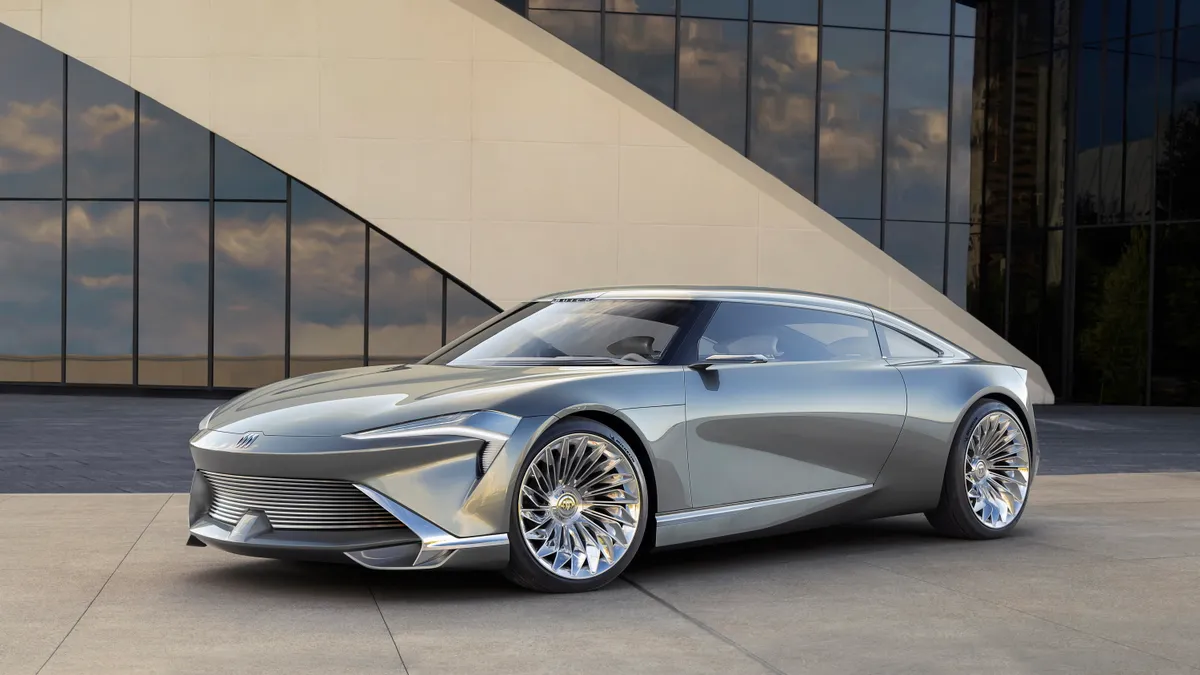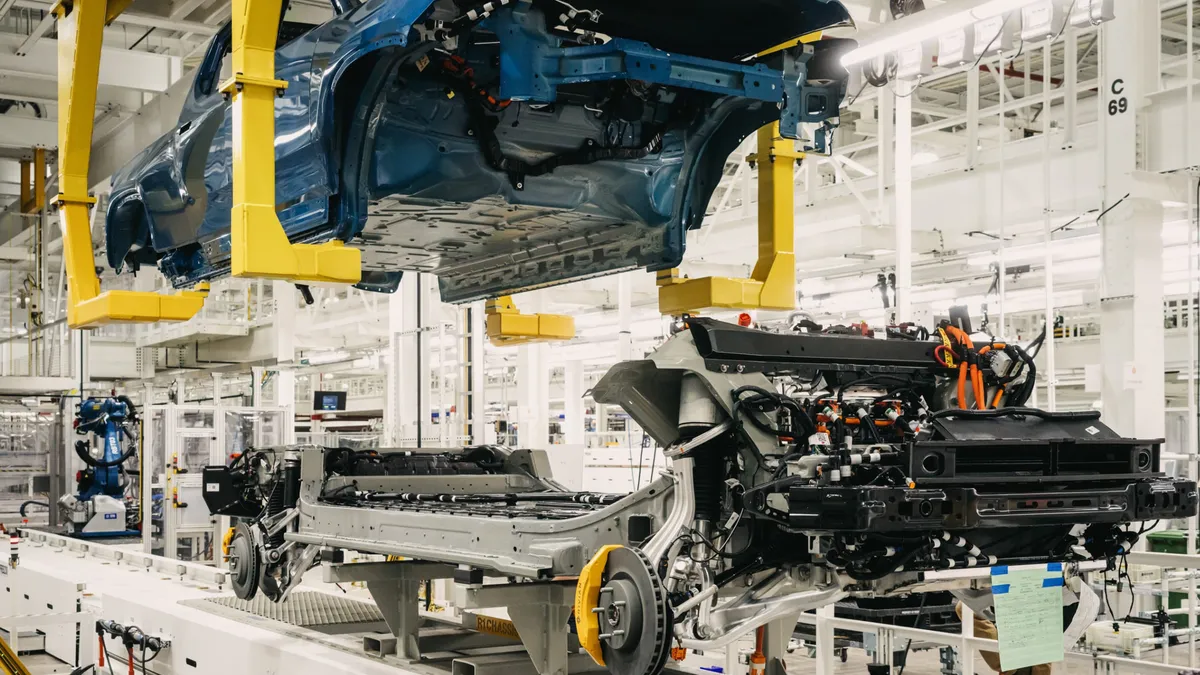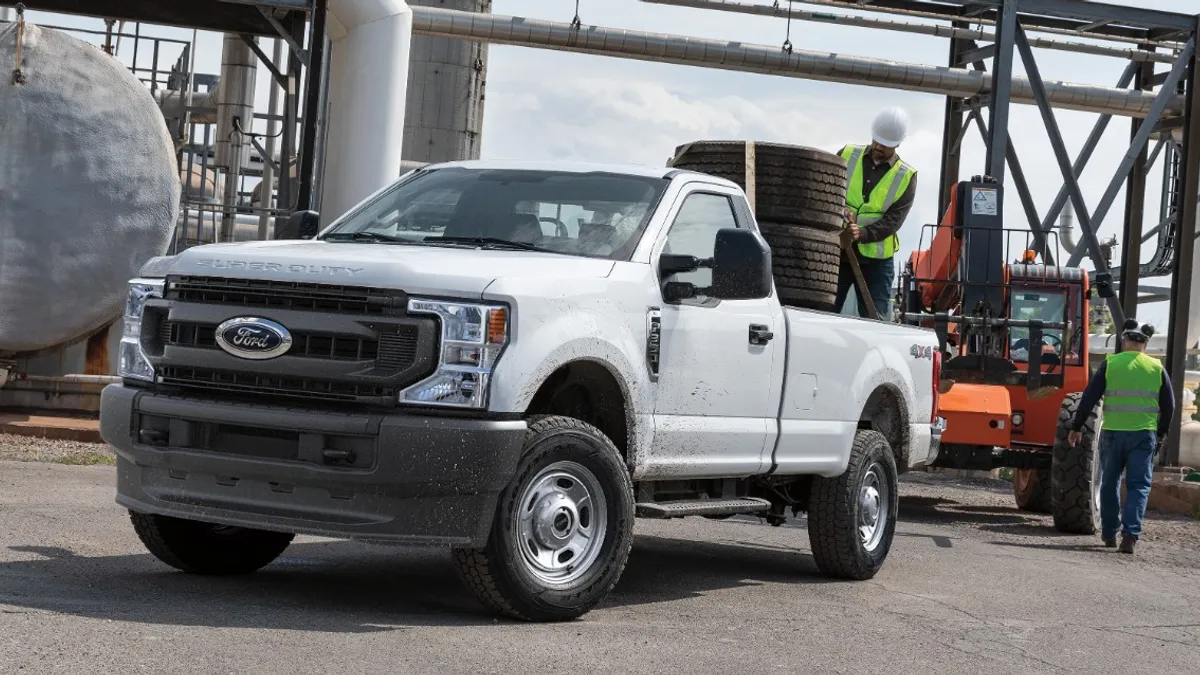Dive Brief:
- General Motors has bought out around half of Buick dealers that declined to invest at least $300,000 to sell and service its future electric vehicles, a company spokesperson confirmed in an email.
- Dealers accepting the buyout will no longer sell Buick vehicles, but they can continue to sell GMC and Chevrolet brand vehicles, according to the Wall Street Journal.
- The buyouts come as GM significantly scaled back its EV rollout as the company deals with weak demand, manufacturing delays and low margins on EVs. Buick has no electric models on the market, but GM plans to transform the luxury brand into an EV-only brand by 2030.
Dive Insight:
The investment by dealers is intended to cover the costs of installing EV chargers, training staff to service EVs and other initiatives, according to the Wall Street Journal. Before the buyouts, GM had roughly 2,000 Buick dealers. However, a GM spokesperson told the WSJ that most Buick dealers have made the required upfront EV investments. As a result of the buyouts, GM said it will have around 1,000 Buick dealers left.
GM will not disclose financial details for the buyouts but said they would reduce Buick dealers by 47%. The company also said there will be no changes in the Buick brand’s marketing efforts.
Buick’s first electric vehicle is expected to be available in 2024, with plans for an all-electric lineup in the U.S. and Canada by the end of the decade. All future Buick EVs will carry the name Electra.
“This year we’ve given dealers who are not aligned with Buick’s future to exit voluntarily in a respectful and structured way; with the full support of our National Dealer Council,” a GM spokesperson said in an email.
Many other dealers in the U.S. have raised concerns about slow sales of EVs, with excess inventory piling up on their lots. In November, a coalition of over 3,800 car dealerships sent a letter to President Joe Biden urging him to pause a proposed Environmental Protection Agency rule that would incentivize EV production and enforce more stringent emission standards by 2027.
The dealership coalition wrote that EVs are simply not selling fast enough and that “electric vehicle demand today is not keeping up with the large influx of [battery electric vehicles] arriving at our dealerships. BEVs are stacking up on our lots.”
GM rival Ford has also revamped its dealer requirements to sell EVs after pushback over costs. Last month, Ford announced updates to its Model e EV program to make it less costly for dealers to become certified to sell Ford EVs. The revised program goes live Jan. 1.
Among Ford's changes to the program are requiring fewer EV chargers and reducing dealer training requirements, which the company said would drop investment costs by about 50%. Ford’s Model e Certified Elite dealers, the investment could have reached $1.2 million under the previous program.
Last year, Ford CEO Jim Farley said 1,920 Ford dealers had enrolled in its Model e program for 2024-2026.
GM announced in October it would abandon its plan to build 400,000 EVs from 2022 through mid-2024 to maximize profitability. The automaker also cited low demand for its decision.
Buick brand currently sells only gas-powered SUVs and compact crossovers.














